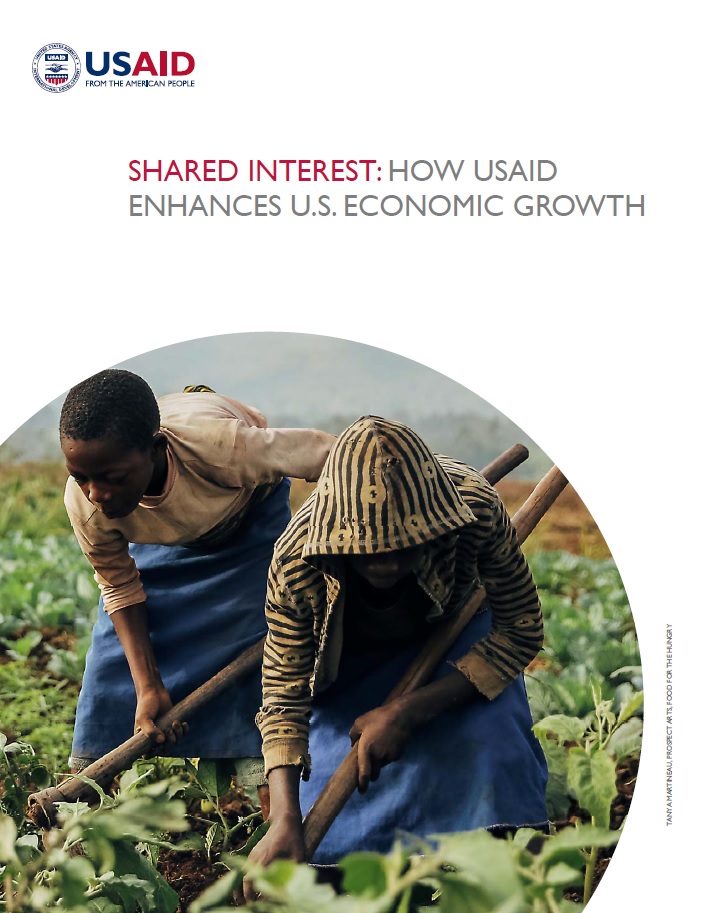Speeches Shim
![]() (1 MB) Shared Interest Paper
(1 MB) Shared Interest Paper
Overview
The primary objective of United States Government (USG) foreign assistance is to promote U.S. and international security and prosperity by bolstering economic and political stability and self-reliance in developing countries. There is no doubt that investing in global development progress is vital to U.S. national security. However, USG foreign assistance through United States Agency for International Development (USAID) also benefits the U.S. economy and U.S. workers. As one of the most internationally competitive economies in the world, the U.S. is a major exporter of goods and services, and our exports are in demand the world over. As countries get richer, they want to buy more U.S. products and services. Over the past 10 years, almost two-thirds of the growth in U.S. goods exports was to major USAID partners. This strong export growth was critical to pulling the U.S. out of the most recent recession. By supporting economic growth and self-reliance in developing countries, USAID helps create better, stronger and more resilient markets for U.S. exports.
USAID supports economic growth in developing countries by supporting domestic private sector development, and helping countries attract and make good use of foreign direct investment (FDI), including from U.S companies. For example, USAID projects support private farmers in partner countries, including helping smallholder family farms commercialize. Other obstacles to economic growth in developing countries include lack of financing for domestic firms to expand, and unreliable and expensive energy; USAID programs help countries tackle these challenges too. USAID missions advise governments on how to increase private investment including FDI by reforming laws, regulations and procedures that were well intentioned but have raised the cost of doing business or the costs of importing and exporting. USAID has found that a little expert advice and support, tailored to country situations, can bring huge economic dividends.
Developing countries need to build their own capacity to supply essential public services, and finance access to services for poorer households. If not, growth will be impeded through failure to develop human capital. USAID’s global health programs maintain healthy families in partner countries through programs that cover health needs throughout the lifecycle, ranging from childhood development to maternal health and reduction of adult mortality. Education programs improve access to schools as well as learning within schools. Water supply and sanitation programs ensure access to these services critical for health. The objective of all these programs is not just to help today’s population but to also support countries’ own capacity to finance, ensure access, and assure quality of these critical services for their population.
Growing the American economy by supporting economic growth in developing countries makes sense. Of course, USAID programs do not support U.S. economic growth by themselves; they complement other programs financed and implemented by other parts of the USG, other donors, and countries themselves, that encourage private sector investment and development. When countries have the commitment to move forward economically, USAID programs can provide the needed capital, technology, ideas, and know-how to assist them. USAID is both from the American people and for the American people.


Comment
Make a general inquiry or suggest an improvement.